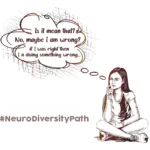Do you ever find yourself staring at the ceiling late into the night, thoughts racing like a marathon runner, unable to catch even a glimpse of sleep? Or perhaps you struggle to maintain focus during the day, constantly battling distractions like a warrior on a crowded battlefield? What if I told you there’s a profound connection between these seemingly disparate experiences?
Welcome to a journey where the seemingly unrelated realms of attention deficit hyperactivity disorder (ADHD) and sleep disturbances converge. In this exploration, we’ll unravel the intricate web that links these two domains, shedding light on their profound impact on each other and on those who navigate their complexities.
But fear not, for amidst the shadows of uncertainty, there exists illumination. By delving into this topic, you’ll not only gain a deeper understanding of the interplay between ADHD and sleep disturbances but also uncover invaluable insights that can pave the path toward improved well-being and enhanced quality of life.
So, are you ready to embark on this enlightening voyage? Prepare to uncover the hidden truths, illuminate the obscured pathways, and emerge empowered with knowledge that has the potential to transform lives. Let’s dive in and discover the profound connection between ADHD and sleep disturbances, unlocking the keys to a brighter tomorrow.

Understanding the Connection Between ADHD and Sleep Disturbances
The Overlapping Realms
ADHD and sleep disturbances often seem like parallel universes, rarely intersecting in our understanding of health. Yet, recent research has unveiled a surprising truth: these two realms are intricately intertwined. Individuals with ADHD are significantly more likely to experience sleep disturbances, ranging from difficulty falling asleep to restless nights plagued by frequent awakenings. This connection runs deep, with both conditions sharing underlying neurological and physiological mechanisms that profoundly influence each other.
Neurological Nexus
At the core of this connection lies the intricate dance between neurotransmitters and brain regions responsible for regulating attention and sleep. Dopamine, a neurotransmitter associated with ADHD, also plays a crucial role in the sleep-wake cycle, influencing alertness and arousal levels throughout the day. Similarly, disruptions in the functioning of brain regions such as the prefrontal cortex and the suprachiasmatic nucleus can lead to both ADHD symptoms and sleep disturbances.
Impact on Daily Life
Understanding the link between ADHD and sleep disturbances is not merely an academic pursuit; it has tangible implications for daily life. Poor sleep quality exacerbates ADHD symptoms, leading to greater difficulties in focus, impulse control, and emotional regulation. Conversely, untreated ADHD can perpetuate sleep problems, creating a vicious cycle that impairs overall functioning and well-being. Recognizing this connection is the first step towards implementing strategies to address both conditions effectively and improve overall quality of life.
How ADHD Impacts Rest and Recovery
Disrupted Sleep Architecture
In the realm of rest and recovery, ADHD casts a long shadow, distorting the natural rhythms of sleep. Individuals with ADHD often exhibit alterations in sleep architecture, characterized by shorter sleep duration, increased time to fall asleep, and fragmented sleep patterns. These disruptions can leave individuals feeling fatigued and irritable during the day, further exacerbating the challenges posed by ADHD symptoms.
Hyperarousal and Sleep Onset
One key mechanism through which ADHD impacts sleep is hyperarousal, a state of heightened alertness that makes it difficult to transition from wakefulness to sleep. The constant buzz of thoughts and the inability to quiet the mind can prolong sleep onset, leaving individuals tossing and turning in bed long after the lights have been turned off. Addressing hyperarousal through relaxation techniques and creating a conducive sleep environment can help mitigate this barrier to restful sleep.
Strategies for Improved Sleep
While the relationship between ADHD and sleep disturbances may seem daunting, there are practical strategies that can promote better sleep hygiene and quality. Establishing a consistent bedtime routine, minimizing screen time before bed, and creating a comfortable sleep environment can lay the groundwork for improved sleep. Incorporating relaxation techniques such as deep breathing or progressive muscle relaxation can help calm the mind and prepare the body for restorative sleep. By addressing these factors, individuals with ADHD can enhance their sleep quality and overall well-being.
Exploring Sleep Disturbances in ADHD
Varied Manifestations
The realm of sleep disturbances in ADHD is vast and varied, encompassing a spectrum of experiences that impact individuals differently. While some may struggle with insomnia, others may battle with restless legs syndrome or sleep apnea. Understanding the diverse manifestations of sleep disturbances in ADHD is crucial for tailoring interventions that address specific challenges faced by individuals.
Impact on Daytime Functioning
The repercussions of sleep disturbances extend far beyond the night, casting a shadow over daytime functioning and overall quality of life. Excessive daytime sleepiness, irritability, and cognitive deficits are just some of the consequences experienced by individuals with ADHD who grapple with poor sleep. Recognizing the profound impact of sleep disturbances on daytime functioning underscores the importance of prioritizing sleep as a cornerstone of holistic ADHD management.
Holistic Approaches
Addressing sleep disturbances in ADHD requires a holistic approach that considers both physiological and behavioral factors. In addition to pharmacological interventions, incorporating lifestyle modifications such as regular exercise, stress management techniques, and maintaining a consistent sleep schedule can play a pivotal role in promoting better sleep quality. By embracing a comprehensive approach that addresses the multifaceted nature of sleep disturbances in ADHD, individuals can embark on a journey towards improved sleep and enhanced well-being.
Strategies for Managing Sleep Challenges with ADHD
Research has shown that behavioral interventions can be highly effective in managing sleep challenges associated with ADHD. A study conducted by Dr. Rachel E. Salas from Johns Hopkins University found that implementing cognitive-behavioral therapy for insomnia (CBT-I) resulted in significant improvements in sleep quality and ADHD symptoms among adults with ADHD. CBT-I focuses on addressing maladaptive sleep habits and restructuring negative thought patterns related to sleep, empowering individuals to develop healthier sleep habits and overcome insomnia.
In addition to behavioral interventions, medication management can also help address sleep challenges in individuals with ADHD. Stimulant medications, commonly used to manage ADHD symptoms, have been found to improve daytime alertness and reduce sleep disturbances when administered in the morning. However, individuals need to work closely with their healthcare provider to find the right balance between managing ADHD symptoms and minimizing potential sleep disruptions caused by medication.
Addressing ADHD Symptoms to Improve Sleep Quality
Managing ADHD Symptoms
Addressing ADHD symptoms is paramount in improving sleep quality for individuals with ADHD. Research by Dr. Margaret H. Sixel from the University of Colorado Denver highlights the importance of effectively managing ADHD symptoms to mitigate sleep disturbances. Behavioral therapies, such as cognitive-behavioral therapy (CBT) and mindfulness-based interventions, have been shown to not only reduce ADHD symptoms but also promote better sleep quality by addressing underlying cognitive and emotional factors that contribute to sleep disturbances.
Creating a Sleep-Friendly Environment
Creating a sleep-friendly environment is essential for optimizing sleep quality in individuals with ADHD. Simple adjustments such as minimizing noise and light exposure, maintaining a comfortable room temperature, and investing in a supportive mattress and pillows can significantly promote restful sleep. Additionally, establishing a calming bedtime routine and practicing relaxation techniques can signal to the body that it’s time to wind down and prepare for sleep, facilitating a smoother transition into restorative slumber.
Cultivating Balance Between ADHD Management and Healthy Sleep
Finding Balance
Achieving a balance between managing ADHD symptoms and maintaining healthy sleep patterns is essential for overall well-being. It’s important to recognize that managing ADHD effectively does not mean sacrificing sleep, nor does prioritizing sleep equate to neglecting ADHD symptoms. Striking a balance between the two requires a comprehensive approach that simultaneously addresses both aspects of health.
Integrated Treatment Approaches
Integrated treatment approaches that holistically address ADHD and sleep disturbances are key to fostering this balance. Dr. Judith A. Owens from Harvard Medical School emphasizes the importance of adopting a multimodal treatment approach that combines pharmacological interventions, behavioral therapies, and lifestyle modifications. By integrating strategies aimed at managing ADHD symptoms and promoting healthy sleep habits, individuals can optimize their overall functioning and quality of life.
Consistency and Persistence
Consistency and persistence are vital in cultivating this balance over the long term. Making small, sustainable changes to daily routines and habits and staying committed to implementing them consistently can yield significant improvements in ADHD symptoms and sleep quality over time. By prioritizing self-care and maintaining a proactive approach to managing ADHD and sleep disturbances, individuals can pave the way for lasting improvements in their health and well-being.
In the journey of understanding the intricate dance between ADHD and sleep disturbances, we uncover not only the challenges but also the resilience of the human spirit.”
– Unknown
In conclusion, the intricate connection between ADHD and sleep disturbances unveils a complex interplay that profoundly impacts individuals’ daily lives. From the restless nights plagued by racing thoughts to the bleary-eyed struggles of navigating the day, the effects of this relationship are far-reaching. However, armed with understanding and equipped with practical strategies, there is hope for finding relief and restoring balance. By addressing both ADHD symptoms and sleep challenges through integrated approaches that encompass behavioral interventions, medication management, and lifestyle modifications, individuals can embark on a journey towards improved well-being and enhanced quality of life. As we navigate this terrain together, let us remember the power of persistence and the significance of self-care in cultivating lasting change. Let’s continue this conversation—share your thoughts, experiences, and insights in the comments below.
Leave a comment below and share your thoughts on managing ADHD and sleep disturbances in your life.





